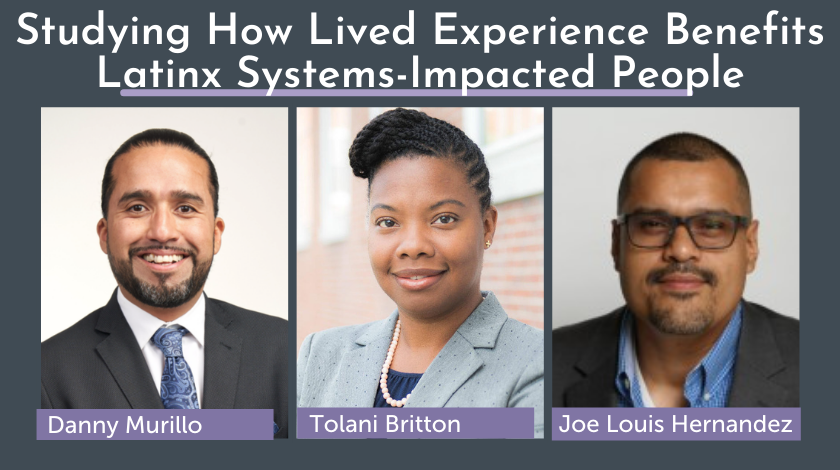News and Announcements
Studying How Lived Experience Benefits Latinx Systems-Impacted People
Published Date
- February 11, 2022

Danny Murillo, our inaugural Smart Justice Fellow, has dedicated his career and research to promoting policies that support incarcerated and formerly incarcerated students. Having served as a Program Analyst at the Vera Institute of Justice and the Campaign for College Opportunity, Danny’s work focuses on creating pathways to higher education for incarcerated people. Before that, Danny graduated from the University of California, Berkeley, with a Bachelor’s in Ethnic Studies. Danny’s career, education, and lived experience directly informed his latest research with Joe Louis Hernandez and Tolani Britton: Hustle in Higher Education: How Latinx Students with Conviction Histories Move from Surviving to Thriving in Higher Education.
While the California higher education system is home to approximately 12,000 system-impacted individuals, there is a lack of research concerning how students with a conviction history, particularly Latinx students, leverage their experiences to hustle and thrive on campus. To address the gap, Hustle in Higher Education shares findings from interviews with 16 Latinx students with conviction histories (SCH) as they go from surviving to thriving. For one month, all 16 students participated in structured interviews that sought to answer the following questions:
- “Describe any experiences that you had while incarcerated or while growing up that you felt you were able to relate to higher education?”
- “Describe how you related [hustling] to higher education?”
- “Tell me about any skills you feel you learned while you were incarcerated or while growing up that you were able to apply to your educational journey?”
- “What have been some ways that you overcome obstacles faced while pursuing your education?”
- “Have you used any of the skills you learned from being incarcerated to overcome these obstacles?”
The researchers found that more than 50% of participants hustled to survive as children and young adults. “It’s resilience. I learned how to survive–big time. I was homeless at 12 years old… [L]iving in [Tijuana], selling fruits and vegetables. I just learned to be resilient. I do not want to say that I know how to ask the right questions, but I’m not afraid to ask questions,” a participant shared. The study found that those who hustled as children used the same skills to fulfill their basic needs as students. For some students, they began their postsecondary educational journey as a means to obtain money through financial aid, which became a stepping stone to success: “The George Miller [grant] was $7,000, McNair [Scholars Program] was $3,000, and the public service [grant] was $1,000 worth of scholarship, that I earned $11,000 in scholarships. I really started hustling… Yes, you’ve got to do some work… To get there [to become eligible], you’ve got requirements for you to do that, but it works on so many levels.” Once in college, students describe themselves as doing what it takes to obtain their future, “I’m like a soldier. That’s how I look at it. It’s like a war. I have to fight for my education, I grind, I work hard. I work hard.”
Similar to soldiers, system-impacted students lean on their peers and resources for success. More than 80% of participants found campus-based programs impactful. Whether it is talking to professors, seeking tutoring, or working with an academic advisor who understands the barriers formerly incarcerated students face, the willingness to seek non-essential services was beneficial, according to the students. In fact, “[r]ather than feeling marginalized, the students in the study were resourceful and made personal connections with college faculty and staff to increase the likelihood of success in college “
Hustle in Higher Education shines a light on the strategic networks SCH’s form as they navigate the challenges and bureaucracy of higher education. While the study underscores the role prior experience and hustling play in the success of systems-impacted people, further research is needed to truly understand the impact on Latinx, Black, and Native students.
To learn more, read Hustle in Higher Education: How Latinx Students with Conviction Histories Move from Surviving to Thriving in Higher Education.
Michelson 20MM is a private, nonprofit foundation seeking to accelerate progress towards a more just world through grantmaking, operating programs, and impact investing. Co-chaired and funded by Alya and Gary Michelson, Michelson 20MM is part of the Michelson Philanthropies network of foundations.
To sign up for our newsletter, click here.